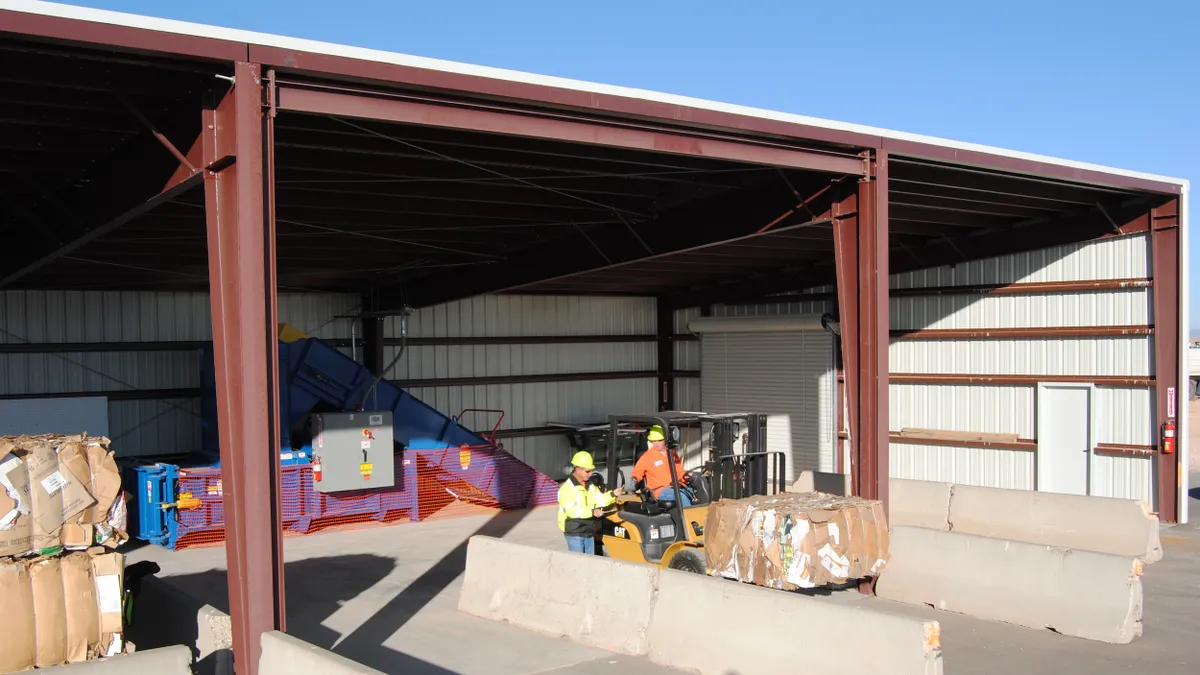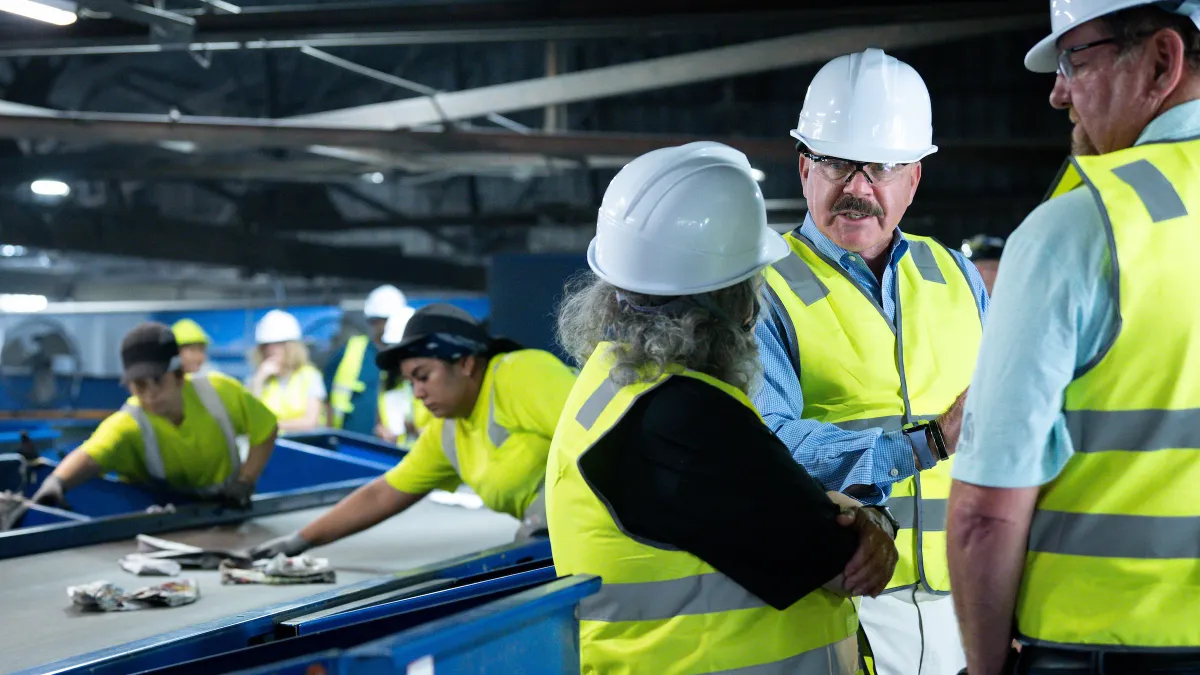UPDATE: Local residents and environmental activists reacted to the Los Angeles County Regional Planning Commission's approval of the Chiquita Canyon Landfill expansion with a protest on Monday, as reported by the Los Angeles Daily News.
Santa Clarita Organization for Protecting the Environment, along with other groups, announced that they filed an appeal to the county's decision. In addition to the fact that the landfill would be expanded beyond its originally promised closure date, protesters also raised concerns about its environmental effects and potential health risks. The county stood by its decision and maintained that the expansion will bring overall benefits.
Because Waste Connections also appealed the decision for different reasons it could take months to reach a resolution.
Dive Brief:
- The Los Angeles County Regional Planning Commission recently approved a permit extension and expansion proposal for Waste Connections' Chiquita Canyon Landfill, as reported by The Signal. This authorizes the Santa Clarita Valley site to stay open for 30 years, until it reaches fill limits or until it hits 60 million tons.
- While a spokesperson for the landfill initially welcomed the news, Waste Connections released a statement on April 20 noting that the conditional use permit includes new fees and operational conditions would make the site "economically unviable." The company did not specify any further details and could not be reached for comment prior to publication.
- Waste Connections now plans to appeal the commission's permit decision to the county's board of supervisors with the expectation of a public hearing before their final vote. The projected timeline for this process is two to three months.
Dive Insight:
Chiquita Canyon has been operating for more than 40 years and some local residents had hoped it would close after recently surpassing the 23 million ton capacity it was previously permitted for in 1997. Though a temporary waiver was recently granted to continue operations and the county has accepted proposed plans to expand the landfill's footprint to 400 acres. A county presentation also shows support for plans to double the current daily intake to 12,000 tons per day, including beneficial use material.
One potential area of disagreement may be a discrepancy in volume projections. Waste Connections proposed accepting up to 4.03 millions tons per year, while the commission recommended 2.1 million tons. This would also include limiting the amount of beneficial use materials to 700,000 tons per year, which the company has routinely exceeded in the past five years. The commission also recommended reducing the proposed height limit by 65 feet. Other recommended permit conditions included periodic site reviews, air quality and odor monitoring, fees on waste from outside of the county, the construction of a household hazardous waste facility, continued composting operations and a number of other items.
During the most recent Waste Connections quarterly earnings call in February, CEO Ron Mittelstaedt noted that while the company didn't win a franchise contract in Los Angeles, he expected Chiquita Canyon to receive "substantial disposal volumes" from others that did. Whether the cost of the county's permit conditions outweigh that potential business, or could be mitigated through some form of compromise, will be discussed in the weeks ahead.













